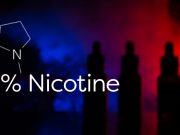The Juul vape pen has been under the spotlight since approximately the second quarter of 2018, when the public started being bombarded by alarming media headlines, claiming that the sleek e-cigarette which looks like a USB, is addicting a whole new generation to nicotine.
In fact a number of complaints and lawsuits have been filed against the manufacturer. Two of the lawsuits were registered in California and seek both damages, and an injunction to curb Juul’s marketing practices, and last August Israel’s Health Ministry announced that the Juul device would be banned across the country.
FDA’s crackdown on Juul
In the letters, the agency demanded that these companies present proof that they can keep the nicotine-containing products out of the hands of minors, within 60 days. Should they fail to do so, the FDA may ban candy-like flavors, such as bubble gum and crème brûlée, that may be particularly appealing to this age group.
Following this, the FDA has taken everyone by surprise by conducting an unexpected inspection at Juul’s San Francisco headquarters, and seizing over a thousand documents related to the company’s operations. The FDA said that this inspection “sought further documentation related to Juul’s sales and marketing practices, among other things.”
Juul CEO Kevin Burns said that the company cooperated and walked the FDA through “every part” of its business, including its marketing practices and age-verification tools used on its online shop. “It was a constructive and transparent dialogue,” he said in a statement.
CDC report indicates Juul Sales Are less Dominant Than Media Reports Claim
In the meantime, new data released by the US Centers for Disease Control and Prevention (CDC), has indicated that Juul accounts for only “nearly one in three e-cigarette sales nationally,” as opposed to the 70% reported by recent media news articles.
Read Further: CNBC












